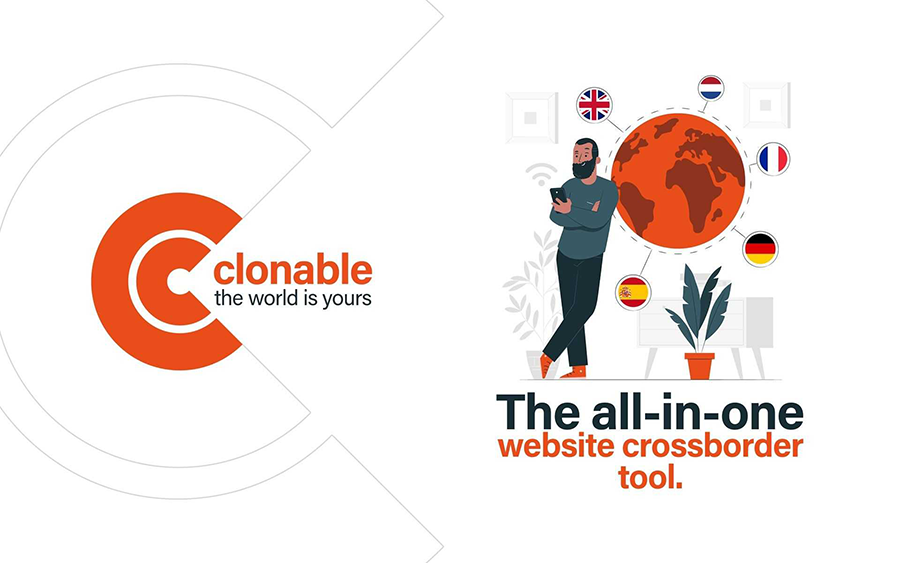Expanding your WordPress website to new languages can be a daunting task. Manually creating multiple versions of your site, translating content, and keeping everything up to date takes a lot of time and resources.
With Clonable, you can make your website multilingual quickly and efficiently, without the hassle of building new sites from scratch. By cloning and translating your WordPress website, you can reach international audiences and boost your SEO performance in foreign markets – all while managing everything from one central dashboard.
Let’s explore how Clonable works, the benefits it offers, and why it’s a must-have tool for any business looking to go global.
Why Make Your Website Multilingual?
International expansion starts with speaking the language of your audience. While many businesses opt for English-only websites, most customers prefer to browse and shop in their native language. In fact, studies show that users are more likely to convert on websites that are tailored to their local language and culture.
But creating and managing multilingual websites can be complicated:
- You need to translate every page, product, and blog post.
- You need to maintain consistency across languages.
- You need to ensure that your translations are SEO-friendly and culturally relevant.
This is where Clonable comes in. Instead of manually creating new websites, Clonable allows you to clone your WordPress site and automatically translate the content. This makes internationalisation faster, easier, and more cost-effective.
How Clonable Works for WordPress Users
Clonable integrates seamlessly with popular CMS systems like WordPress, making it incredibly easy to create multilingual versions of your website. Here’s how it works:
1. Clone Your Website
With just a few clicks, you can clone your existing WordPress site to a new domain (e.g., yourwebsite.de for Germany or yourwebsite.fr for France).
2. Automatic Translation
Clonable uses AI-driven translation tools to automatically translate your content into the target language. This ensures your site is ready for international audiences without the need for manual translation.
3. Customise for Local Markets
The cloned version is fully customisable. You can adjust text, images, product descriptions, and even SEO settings to better target the local market. This includes:
- Replacing images to reflect local culture.
- Adjusting keywords to match local search trends.
- Tweaking meta tags for better local SEO performance.
What Makes Clonable Different from Traditional Translation Methods?
Many businesses rely on manual translations or plugins to create multilingual sites, but these methods are often time-consuming and difficult to manage. Clonable stands out by offering a fully automated, scalable solution that’s perfect for WordPress users.
Here’s why Clonable is the better choice:
- Quick Setup: Your multilingual site can be live in minutes, not weeks.
- Automatic Updates: Any changes made to your original site are automatically applied to the translated versions, so you don’t need to update multiple sites manually.
- SEO-Friendly Translations: Clonable ensures that your multilingual content is seen by Google as unique content, helping you rank better in local search results.
Benefits of Using Clonable for Multilingual WordPress Sites
Expanding your website to new languages offers several key benefits:
1. Improved SEO Performance
Localised websites rank better in local search results. Clonable ensures that your multilingual content is optimised for SEO, helping you reach new audiences organically.
2. Faster Time to Market
Traditional translation methods can take weeks or months. With Clonable, you can launch a multilingual site within minutes, allowing you to enter new markets faster than your competitors.
3. Cost Efficiency
By automating the translation process, Clonable reduces the costs associated with traditional translation services by up to 90%. You no longer need to hire expensive translators or developers to manage your multilingual sites.
4. Enhanced User Experience
Customers are more likely to engage with websites that are tailored to their language and culture. Clonable makes it easy to adapt your website for different regions, improving engagement and conversions.
5. Centralised Management
With Clonable, you can manage all your multilingual sites from a single WordPress dashboard, simplifying maintenance and updates.
Customisation and Internationalisation Tools
Clonable goes beyond simple translation. It offers a range of tools to customise and personalise your multilingual sites for different markets:
- SEO Tools: Adjust keywords, meta tags, and URLs to match local search trends.
- Cultural Adaptations: Replace images and text to reflect local customs and preferences.
- Proofreading Options: Ensure your translations are natural and professional with built-in proofreading tools.
- Legal Compliance: Add features like Germany’s Impressum to meet local legal requirements.
These tools allow you to fine-tune your site for each market, ensuring that it resonates with local audiences and meets regional regulations.
Real-World Example: Expanding to Germany and France
Let’s say you run a WordPress webshop in the UK and want to expand into Germany and France.
With Clonable, you can:
- Clone your site to yourwebsite.de and yourwebsite.fr.
- Automatically translate your content into German and French.
- Customise your SEO settings to match local search terms.
- Ensure compliance with local laws by adding country-specific legal pages.
The result? A seamless, multilingual experience for your customers that improves your international reach and increases your conversions.





